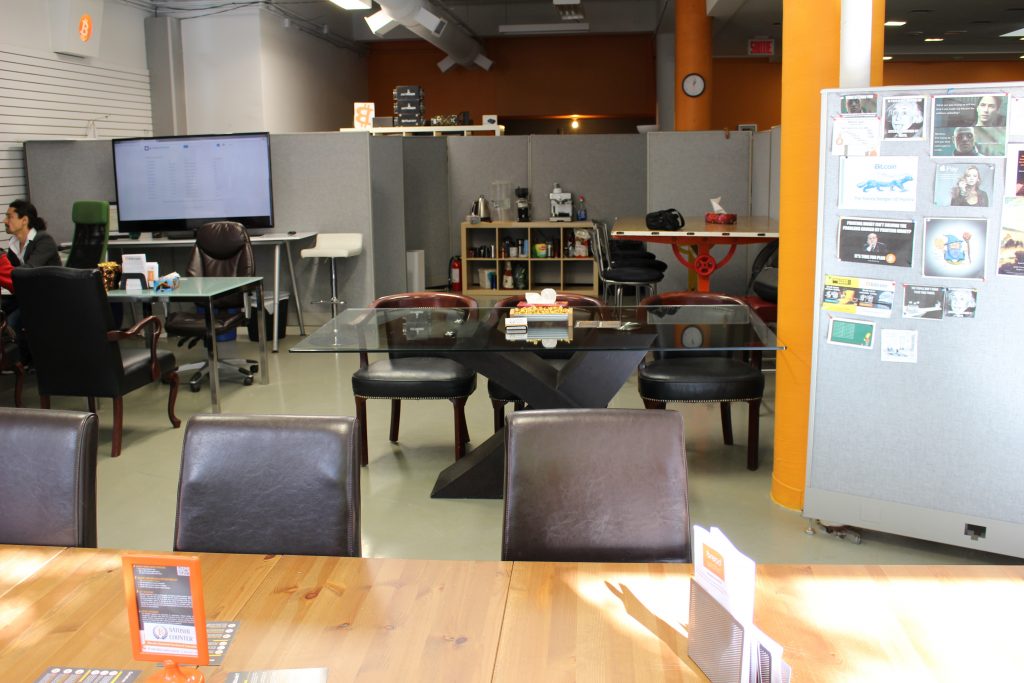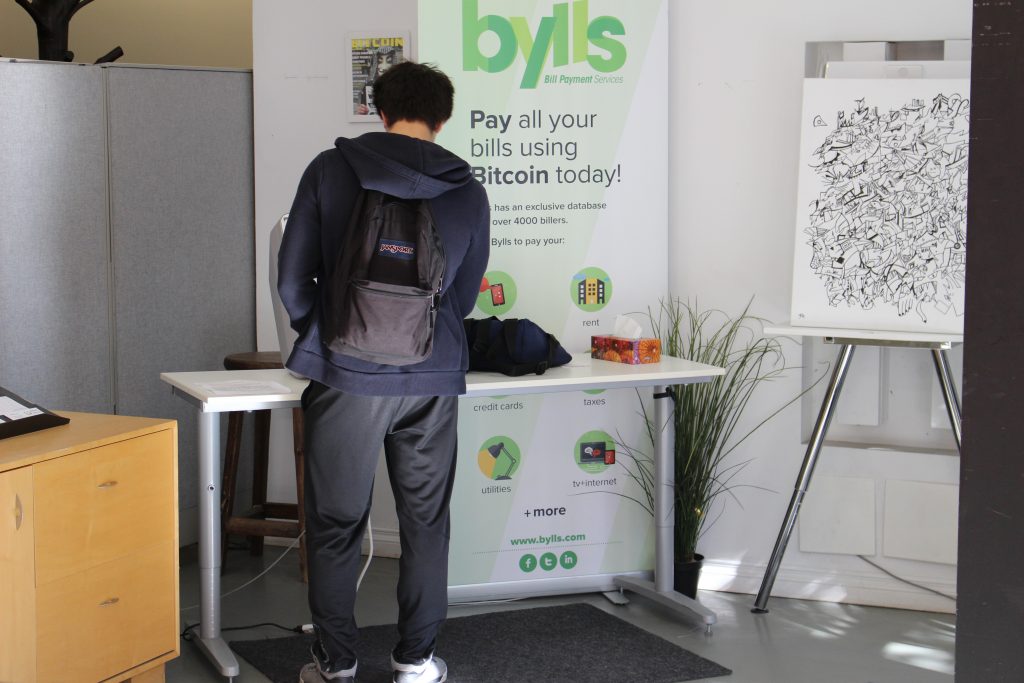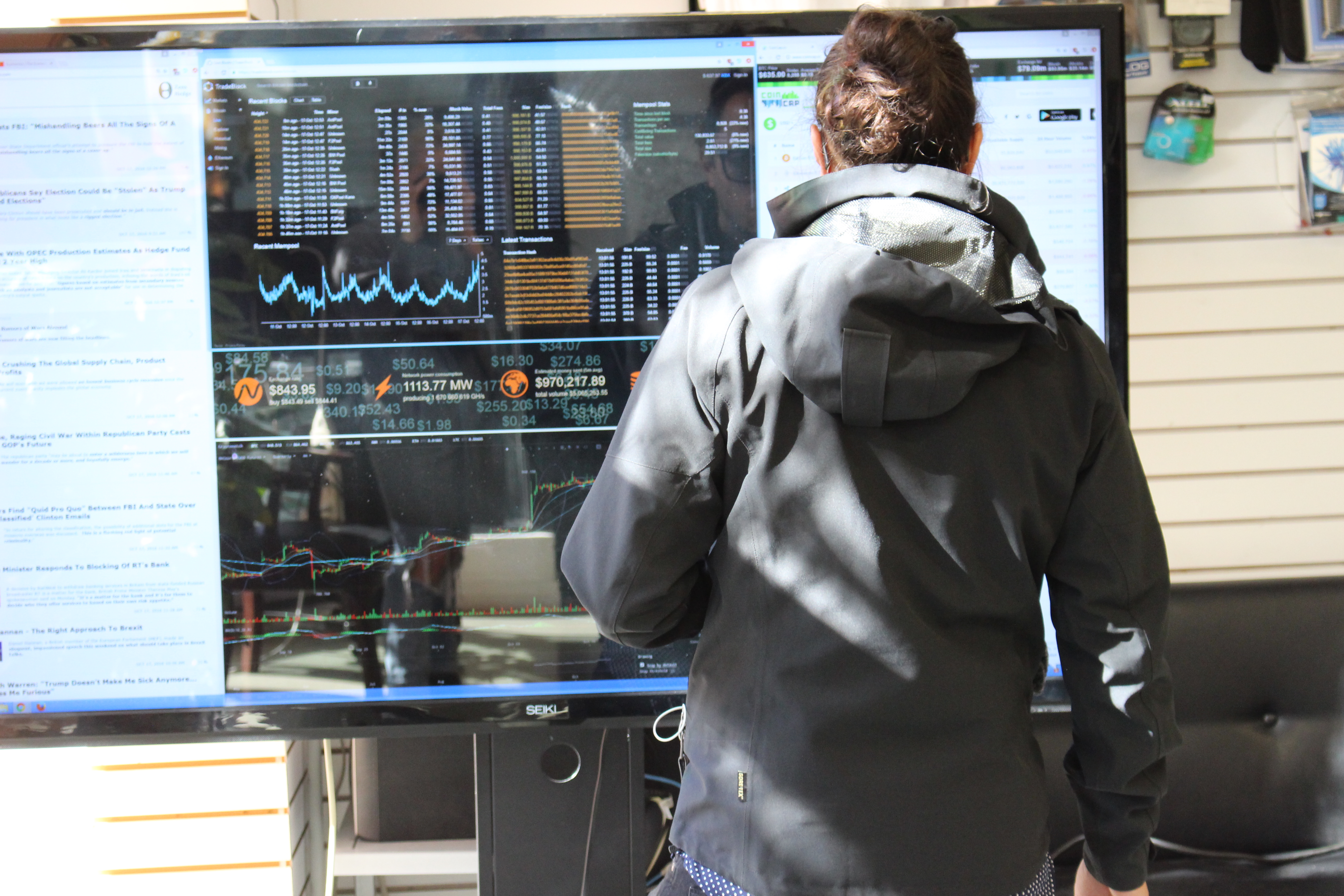A controversial digital currency leaves some users and experts optimistic and others skeptical
When digging into popular Canadian newspaper archives, searching for the keyword “Bitcoin” might bring up a scary overload of information on cyber-attacks and ransom payments.
Right about now, though, you might also be asking yourself, what in the world is a Bitcoin?
Created in 2009 by a developer who goes by the name of Satoshi Nakamoto, Bitcoin is an international digital currency. It started as an open, non-profit system. Today, it is most often associated with its affiliation to the black market, and how well it serves criminals.
It is virtually impossible for one person or one organization to control Bitcoin, according to Erik Voorhees, CEO of ShapeShift—a service that allows people to exchange money in different digital currencies. The Bitcoin system is different from all other government-issued currencies.
Montreal is home to the Bitcoin Embassy, an office where developers and entrepreneurs seek to educate the public about Bitcoin—a payment system that is both a bank and a currency.
Located on St-Laurent Boulevard, the embassy is open to the general public. Employees provide consultations and written resources from leading experts to help any interested civilian, or business leader understand what Bitcoin is and what it can do for them.
Bitcoin bypasses banks and government authority, said Voorhes. Transferring money with Bitcoin worldwide is free, no questions asked. The currency is stored in a digital wallet—basically a smartphone or a computer. From there, the currency can also be printed out. Only the account owner has access to the information contained in the “wallet.” A Bitcoin transaction is done by sending the payment to the address generated by the user’s Bitcoin wallet.
Canadians can buy Bitcoin from online sellers like Coinbase, or from one of the 117 Bitcoin ATMs across the country. One of them is located at Montreal’s Bitcoin Embassy.

The list of corporations accepting Bitcoin payments is getting longer. For instance, you can add money to your Microsoft account with this currency. Students at Simon Fraser University in British Columbia can use Bitcoin to pay for their textbooks. It is also possible to pay your bills with Bitcoin using Bylls.com, a payment service firm that “was incubated at the Bitcoin Embassy,” wrote Danny Bradbury in an article for the specialized website CoinDesk.
“Bitcoins are created by the network itself, over time,” said Voorhees. The process is called mining, and it consists of resolving mathematical equations with sophisticated and powerful computers. The mining process is about creating a kind of track record for all Bitcoin transactions that have been made. This process exists to prevent people from re-spending their Bitcoin. This mining process is available to anyone who has the appropriate computer software.
Bitcoin is a self-sufficient and self-regulating system—it creates a certain amount of bitcoins every ten minutes—this number is subject to inflation—and this amount is distributed among miners who have solved the equations.
According to yBitcoin Magazine, for the next four years, 12.5 bitcoins will enter the system every ten minutes. Voorhees wrote in yBitcoin that, as of October 2015, approximately 14 million bitcoins had been created, and that the system is capped at 21 million.
Chief architect for Bitcoin Store, David Perry, wrote in yBitcoin that Bitcoin is “a simple, elegant and modern replacement for the entire concept of money.”

“The effect will be to remove much of the current bureaucracy and barriers to entry, presenting a huge opportunity for the world’s 2.5 billion unbanked people,” said Tuur Demeester, an investor, analyst and expert on Bitcoin and blockchain technology, in the same publication.
Bitcoin is a decentralized system which can be used by anyone who has access to Internet. “It means a citizen of a tyrannical nation can hide his financial assets from seizure,” said Voorhees. “It means the wealthiest and the poorest of the world now have the same authority over their money.”
Bitcoin could undermine the current economic system, to some degree, if it started being used by the masses around the world. “It democratizes finance just as the Internet democratized speech,” said Voorhees.
While some experts like Demeester thinks Bitcoin belongs in everyone’s wallet because of its economic potential, others, like Voorhees, are most concerned with the fact that “private property can now truly be controlled by the owner.”




